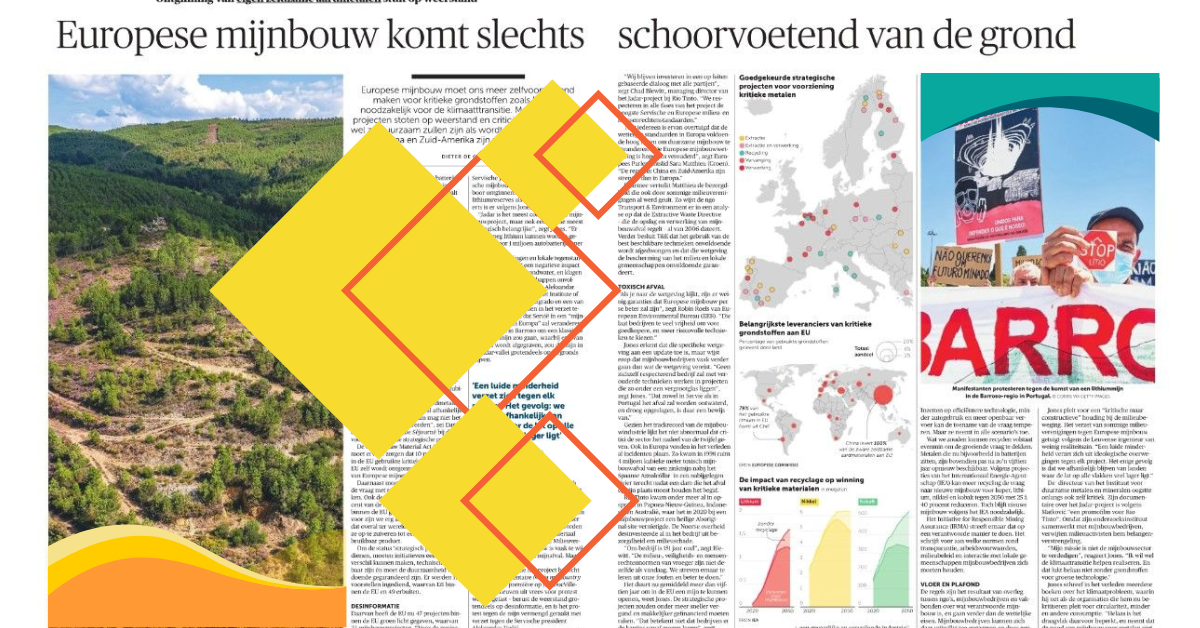The European Union’s ambitions to boost domestic mining for critical minerals like lithium, essential for its climate transition goals, are encountering fierce resistance from environmental groups and local communities. Despite the EU’s Critical Raw Material Act (CRMA) targeting self-sufficiency in metals such as lithium and cobalt, delays and protests threaten to derail projects across member states, raising concerns about the bloc’s ability to meet its green energy targets.
The CRMA, adopted in 2023, aims to reduce reliance on imports from China and other nations by fast-tracking permits for strategic mining projects. However, activists argue these initiatives prioritize industrial interests over ecological preservation. In Portugal’s Barroso region, for instance, plans to extract lithium—a key component in electric vehicle batteries—have sparked demonstrations, with protesters holding signs declaring “No to the mine” and “Stop Lithium.” Similar tensions exist in Spain’s Serra da Lousã area, where locals fear deforestation and water contamination from mining operations.
With over 200 mining projects stalled across Europe, the continent’s path to energy independence remains fraught. As activists chant “Just Transition, Not Just Extraction,” the EU must navigate a precarious balance between securing raw materials and safeguarding its green credentials.
In recent years, Australia has overtaken France and Portugal in terms of lithium production. Is that a problem? From the perspective of the European Commission, it is one of the first “warning signs” regarding the supply of critical raw materials. Lithium is crucial for the batteries used in electric vehicles and energy storage systems, and its demand is expected to increase significantly in the coming decades.
The European Commission’s Vice-President Frans Timmermans recently warned about this situation during a meeting with Dutch ministers. He stated: “This is not just an issue for the Netherlands; it affects all of Europe.” The commission aims to ensure that Europe can produce sufficient amounts of these materials domestically to meet its needs.
Several factors make it challenging for Europe to secure its supply of critical raw materials. One reason is the high environmental standards in Europe, which often lead to delays or cancellations of mining projects. Additionally, there is significant public opposition to mining activities, particularly in densely populated areas.
These challenges have led to calls for increased domestic mining in Europe. Critics argue that Europe’s reliance on imports from countries like China poses risks. Chinese lithium mining has been criticized for its environmental impact, leading some European policymakers to push for greater self-sufficiency.
The Critical Raw Materials Act (CRMA), adopted by the EU in 2023, aims to address these concerns by promoting sustainable mining practices and reducing dependency on imports. However, implementing this act faces numerous obstacles, including regulatory hurdles and public resistance.
One challenge is the lack of political consensus on mining projects. In many European countries, mining is seen as environmentally harmful, and local communities often oppose new mines. This opposition can delay or derail projects, even when they are deemed necessary for the transition to renewable energy.
Another factor is the limited availability of suitable mining sites within Europe. Many potential sites are located in protected areas or regions with strict environmental regulations. This makes it difficult to find locations where mining can be conducted without significant environmental impact.
Despite these challenges, some European countries are taking steps to increase their domestic production of critical raw materials. For example, Germany has launched several initiatives to explore and develop domestic mining opportunities. Similarly, Sweden and Finland are investing in research and development to improve mining technologies and reduce environmental impacts.
However, critics argue that these efforts are insufficient. They point out that the pace of development is too slow, and current projects may not be able to meet future demand. There are also concerns about the social and economic impacts of mining, particularly in rural areas where mines are often located.
To address these issues, the European Commission has proposed several measures, including financial incentives for sustainable mining projects and stricter regulations on imported materials. The goal is to create a balanced approach that ensures both environmental protection and resource security.
In conclusion, while Europe is making progress towards greater self-sufficiency in critical raw materials, significant challenges remain. Balancing environmental concerns with the need for resources will require innovative solutions and strong political will. Without decisive action, Europe risks becoming increasingly dependent on foreign suppliers, which could undermine its ability to achieve its climate goals.

